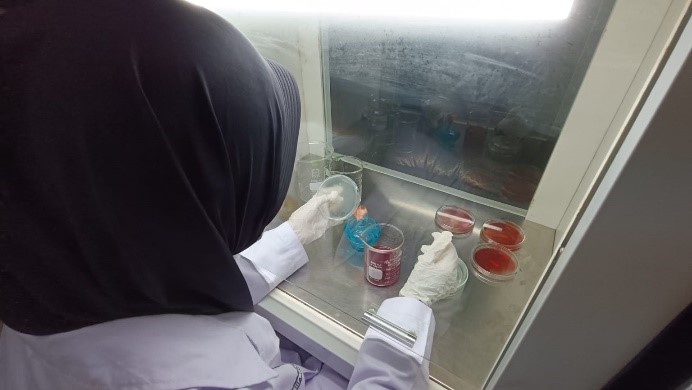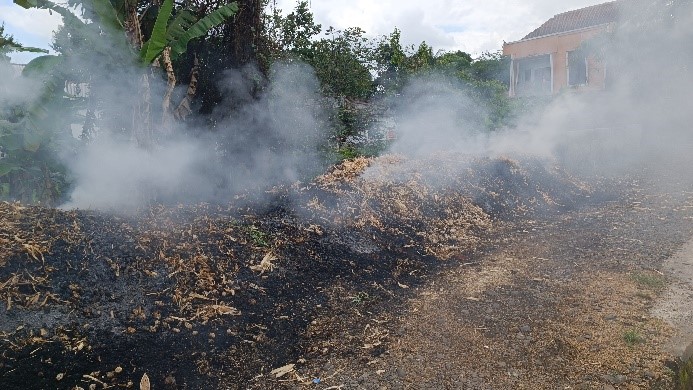Exploration of Cellulose Degrading Bacteria Overcoming Corn Waste
[unsoed.ac.id, Fri, 15/09/23] Corn is one of the food crop commodities in Indonesia that has a strategic value in fulfilling food self-sufficiency. In addition, corn has also been used for various other needs such as animal feed, industrial raw materials, and renewable bioenergy production. The great potential for utilization makes corn one of the commodities that continues to be cultivated on a large scale to this day. One of the corn cultivation centers in Banyumas Regency is Sumbang Subdistrict.
Referring to the statistical data released by the Central Bureau of Statistics of Banyumas Regency in 2022, it is known that Sumbang Sub-district has a total corn harvest area of 1,721.50 ha with a productivity of 11,689 tons. This puts Sumbang Sub-district as the first rank in corn production in the Banyumas Regency area. Despite its great potential and benefits, corn production is also accompanied by problems, one of which is waste management.
Corn waste is a byproduct of the corn crop, generally in the form of cobs, husks, and corn stalks. These components become waste because most farmers, especially in Sumbang Subdistrict, only sell corn in kernels. This waste is generally burned by farmers. This can cause environmental problems due to incomplete combustion and can cause air pollution that affects health. Another alternative that can be done to process corn waste is by composting. However, the process of composting corn waste takes a long time because corn waste has a high cellulose content making it difficult to decompose.
The corn waste problem was the background for the Unsoed Student Team to conduct research through the PKM-RE program issued and funded by the Ministry of Education, Culture, Research and Technology. The team is led by Aprilia Fatmawati (A1D021042) and consists of Ayu Azkiyah (A1D021027), Ahmad Fathan Mafazi (A1D020178), Akas Yusuf Sugito (A1D020101), and Zulfa Naila Putri M. (A1D021158). The solution offered by the PKM-RE Team is to utilize cellulose degrading bacteria obtained from the exploration of corn waste. The bacteria obtained are expected to accelerate the decomposition process in composting corn waste. In the research process, the PKM-RE Team was guided by Ida Widiyawati, S.P., M.Si.
Aprilia Fatmawati explained that the research process requires several stages starting from isolating bacteria, then identifying the bacteria obtained to testing their degradation potential. The targeted output from this research is the isolation of bacteria that can degrade cellulose from corn waste. "This innovation is expected to overcome the problem of corn waste by utilizing the potential of cellulose degrading bacteria as organic waste decomposer so that organic waste (corn) decomposes quickly," she expected.



